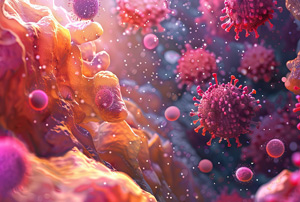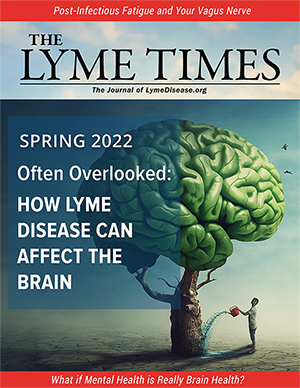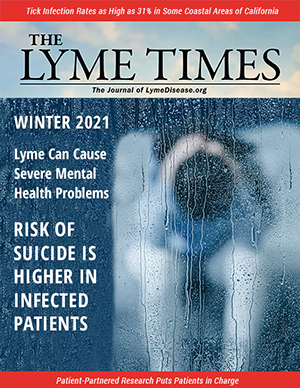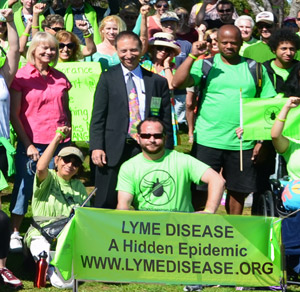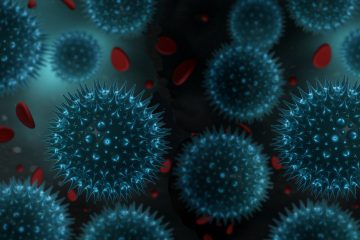 T hose of us dealing with Lyme disease are well aware that most symptoms reside in the musculoskeletal and nervous systems. And for many of us, the worst symptoms in the nervous system are neuropsychiatric. The severity of anxiety, panic attacks, depression, irritability and rage can be overwhelming.
T hose of us dealing with Lyme disease are well aware that most symptoms reside in the musculoskeletal and nervous systems. And for many of us, the worst symptoms in the nervous system are neuropsychiatric. The severity of anxiety, panic attacks, depression, irritability and rage can be overwhelming.
Chronic tick-borne infections can also cause bipolar disease, addiction syndromes, eating disorders, obsessive compulsive disorder and psychosis. 1-8 And of course, it is all compounded by impaired sleep, brain fog, fatigue and chronic pain, not to mention physician ignorance.
Neuroinflammation
It turns out that these mental health symptoms are primarily caused by inflammation from infection outside the nervous system. 9
For example, kids with PANS — Pediatric Acute-onset Neuropsychiatric Syndrome — have infections in which antibodies to different microbes cross the blood brain barrier and attack the brain, resulting in severe mood and behavioral disturbances.10 A similar process occurs in adults with neuropsychiatric Lyme disease.11-13
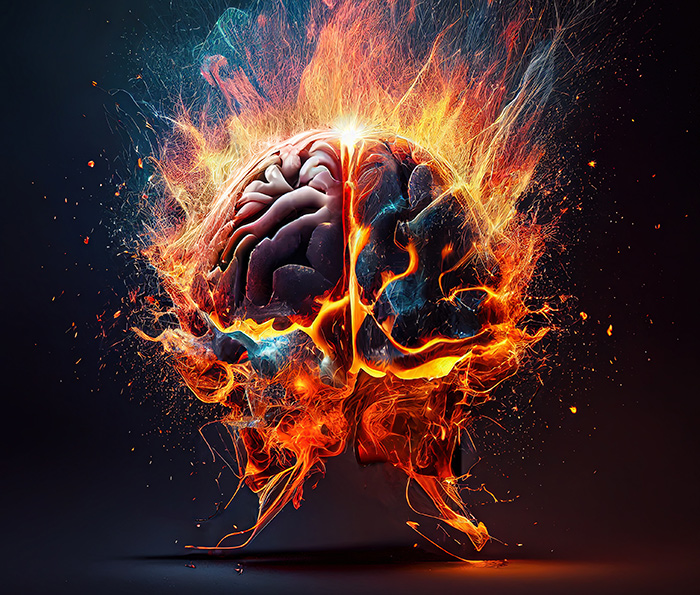 There is increasing recognition that many mood disorders are linked to infections and autoimmune disorders, and the common link is neuroinflammation — brain on fire.14
There is increasing recognition that many mood disorders are linked to infections and autoimmune disorders, and the common link is neuroinflammation — brain on fire.14
It is no surprise that people with neuropsychiatric Lyme disease have elevated levels of inflammatory mediators including antineuronal antibodies, cytokines, chemokines and inflammatory lipoproteins.9 Think of neuropsychiatric Lyme disease as autoimmune inflammation of the brain. The primary legs of treatment are antimicrobials, psychotropic medications and anti-inflammatory agents. Ideally, an anti-inflammatory agent will decrease inflammation but not suppress immune function…….Join or login below to continue reading.







